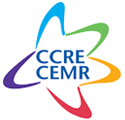
Iceland Unitary state
| ICELAND | / STRUCTURES |
Structures and competences
Local level :
74 municipalities (sveitarfélag)
The municipal council (called differently depending on the size of the municipality: sveitarstjórn, bæjarstjórn or borgarstjórn for Reykjavík city) is composed of councillors elected by direct universal suffrage, for a four-year term. These councillors are responsible for the management of the municipality and appoint permanent committees to assist the council in its work. These committees work on specific issues wholly or partly related to local life and make recommendations to the council.
The executive committee (called differently depending on the size of the municipality: byggðaráð, bæjarráð or borgarráð for Reykjavík city) is the municipality’s executive body and is composed of municipal council members designated by the council. It is in charge of the financial and administrative management of the municipality.
The president of the council (called oddviti or forseti depending on the size of the municipality) is elected by municipal council majority. He/she presides over the council. Following elections, the municipal council may decide to appoint one of its members as mayor or may designate a nonpolitical person to take on this role.
Municipalities have the possibility of taking on additional tasks concerning their inhabitants provided that they have the budget to support these and that the tasks in question are not assigned to other government administrations by law.
COMPETENCES
- Social services and child welfare
- Services for persons with disabilities
- Preschools and primary schools
- Culture, sports and leisure activities
- Public utilities (heating, sewage, water and electricity)
- Spatial and urban planning
- Building inspection
- Public parks and open areas
- Monitoring of public and environmental health
- Fire services
- Public transport
- Waste management and collection
- Harbours





